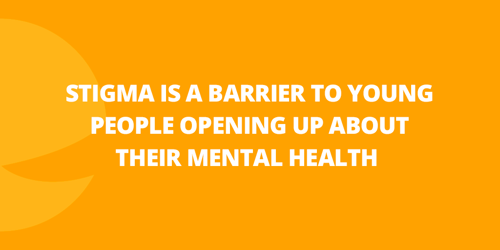Our Response to New Research from the Mental Welfare Commission
Posted by See Me, 23 October 2019
Today the Mental Welfare Commission published new research showing the number of people being detained for mental illness in Scotland is now at its highest ever, with rising figures for young people.

While these numbers are troubling, particularly for young people, they are not surprising.
The stigma and discrimination around mental health acts a huge barrier to people getting help and support early, which could avoid the need for this type of crisis intervention.
We recently worked with our young volunteers looking at the Mental Health Act and the role of detention and compulsory treatment.
They told us that it is too hard for young people to access mental health services in the community, which can mean that any underlying mental health problems gets worse, leading to a point where some young people find themselves detained in hospital under the Mental Health Act.
The stigma around mental health problems, particularly those where the symptoms can be more severe and enduring, also leads to a culture of silence about mental health. That means people do not know about positive coping mechanisms and are worried about engaging with services, due to the impact this may have. This is especially bad when young people don’t feel they’re taken seriously by healthcare professionals. Responses like “it’s just a phase” are very damaging, but unfortunately not uncommon.
Young people said words and phrases, like ‘mental disorder’, ‘detained’ and ‘sectioned’, which are associated with the Mental Health Act, are highly stigmatising and make it harder to speak about mental health in a sensitive way, and harder to access support.
Our volunteers also felt that people are not informed about advance statements and more should be done to raise awareness of them. These are intended to protect your rights if you become unwell, by allowing you to have a say in how you will be treated, before you reach a point of crisis.
The final issue they focused on, and was also highlighted by the new report, was the variation in detention levels across the Health Boards, which suggests the guidelines for the Act are not being interpreted in the same way across Scotland. This means that issues like ‘how many mental health officers there are’ determines what happens to a person more than the person’s actual need for the Act. This is deeply troubling, as people should be getting the health care that is right for them, not just what is available in a certain area. We want to see standards uniform across Scotland and greater support both in the guidelines and how they are implemented.
